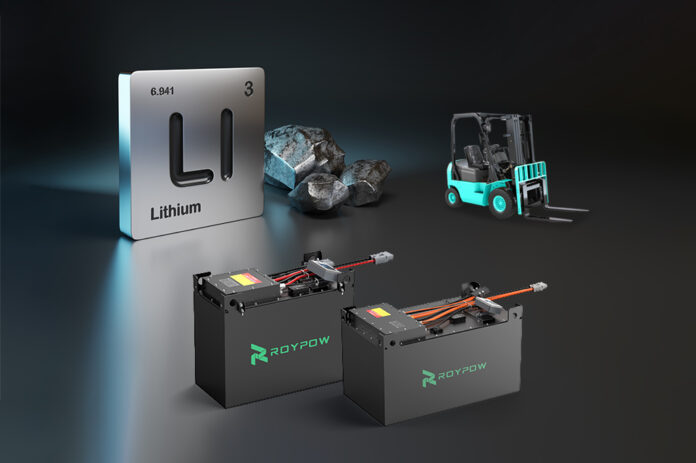Modern logistics, warehousing, and manufacturing industries are evolving at a rapid pace. To keep up, companies are increasingly investing in smarter, greener technologies — and one of the most impactful upgrades is switching from traditional lead-acid batteries to Lithium Forklift Batteries. This innovation is transforming how forklifts are powered, delivering longer runtimes, faster charging, and lower overall maintenance.
Let’s explore what makes lithium batteries the go-to solution for forward-thinking warehouse operations.
The Evolution of Forklift Power Systems
For decades, lead-acid batteries were the norm in forklift operations. While dependable in their time, these batteries come with significant downsides—slow charging, heavy maintenance, reduced lifespan, and safety concerns due to corrosive acid and off-gassing.
The emergence of Lithium Forklift Batteries has revolutionized how electric forklifts operate. These batteries are lighter, faster-charging, and significantly more efficient. You can learn more about advanced battery solutions at Lithium Forklift Batteries.
Why More Warehouses Are Choosing Lithium Technology
1. Increased Productivity with Fast Charging
Lithium-ion batteries can be recharged in as little as 1–2 hours, compared to the 8–10 hours needed for lead-acid models. This quick recharge capability allows for opportunity charging during short breaks, minimizing downtime and keeping operations running continuously.
2. Zero Maintenance Required
Unlike lead-acid batteries that need regular water top-offs, equalizing charges, and acid checks, lithium-ion batteries are completely maintenance-free. This saves valuable time, labor, and money.
3. Longer Battery Life and Greater ROI
Lithium forklift batteries offer a much longer lifespan, often delivering up to 3,000–5,000 charge cycles. This longevity translates into reduced battery replacement costs and a higher return on investment over time.
4. Improved Energy Efficiency
Lithium-ion batteries are more efficient in storing and delivering power. Less energy is lost during charging, meaning lower electricity bills and a reduced carbon footprint for your warehouse.
5. Enhanced Safety Features
With built-in Battery Management Systems (BMS), these batteries actively monitor temperature, voltage, and overall health. This reduces the risk of thermal runaway, fire, or explosions, which is a concern with older battery types.
Key Features of High-Quality Lithium Forklift Batteries
- Smart BMS integration for real-time monitoring
- Fast charging capabilities without memory effect
- Wide operating temperature range for indoor and outdoor use
- Lightweight design improving forklift efficiency
- Sustainable materials with minimal environmental impact
These features make them ideal for a range of applications, including cold storage, food distribution centers, retail warehousing, and high-volume e-commerce operations.
Comparing Lithium-Ion vs. Lead-Acid Forklift Batteries
| Feature | Lithium-Ion Batteries | Lead-Acid Batteries |
|---|---|---|
| Charge Time | 1–2 hours | 8–10 hours |
| Maintenance Required | None | Regular (watering, equalizing) |
| Cycle Life | 3,000–5,000+ cycles | 1,000–1,500 cycles |
| Energy Efficiency | 95% | 75–85% |
| Safety | High (with BMS) | Moderate (acid leakage risk) |
| Cost (initial vs. long term) | Higher upfront, lower lifetime | Lower upfront, higher lifetime |
Real-World Applications: Who Benefits Most?
1. 24/7 Distribution Centers
Companies running around the clock can benefit greatly from the fast charging and opportunity charging features. This minimizes downtime between shifts.
2. Cold Chain Warehousing
Lithium batteries perform well in cold environments, unlike lead-acid batteries, which lose capacity and charge efficiency.
3. E-commerce Fulfillment Warehouses
High-speed order picking and constant movement demand a battery system that supports continuous power with no drop in voltage, a strong suit of lithium-ion technology.
4. Retail and Grocery Chains
These operations rely on reliable material handling and often cannot afford extended downtimes — quick battery swap-outs and opportunity charging are a perfect fit.
Environmental Benefits of Switching to Lithium Forklift Batteries
Sustainability is not just a buzzword. With lithium-ion solutions, you eliminate acid spills, reduce energy consumption, and prevent harmful emissions. Additionally, many lithium batteries are recyclable, minimizing the long-term environmental impact.
Businesses adopting green solutions also benefit from a positive brand image and, in some regions, government incentives for reducing carbon emissions.
How to Transition to Lithium Forklift Batteries
Before making the switch, consider the following:
- Evaluate your current fleet’s compatibility
- Determine charging infrastructure requirements
- Calculate ROI based on current battery expenses
- Train warehouse staff on handling and safety
Partnering with a reputable supplier will ensure you receive the right configuration and support for seamless integration.
FAQs About Lithium Forklift Batteries
Q1: How long does a lithium forklift battery last?
A high-quality lithium-ion battery can last between 3,000 to 5,000 charge cycles, often equating to 8–10 years depending on usage.
Q2: Can I retrofit my old forklift with a lithium battery?
Yes, many lithium batteries are designed to fit existing forklift models. However, compatibility should be checked with the manufacturer.
Q3: Is it safe to charge lithium batteries indoors?
Absolutely. These batteries have no harmful emissions and are safe for indoor environments thanks to advanced battery management systems.
Q4: Do lithium batteries require special chargers?
Yes, but many manufacturers provide universal or adaptable charging solutions. It’s best to use the charger recommended by your battery provider.
Q5: Are lithium-ion forklift batteries affected by extreme temperatures?
They perform better than lead-acid batteries in both cold and hot environments. However, extreme temperatures can still affect performance, so consult with your supplier for the optimal solution.
Final Thoughts
Lithium Forklift Batteries represent the future of efficient, sustainable material handling. With benefits like rapid charging, longer lifespan, enhanced safety, and zero maintenance, it’s clear why more companies are upgrading to this technology.
Warehousing and logistics businesses that prioritize uptime, sustainability, and cost-efficiency should seriously consider this powerful alternative. Making the switch not only optimizes operations but also positions your business at the forefront of innovation in material handling.



